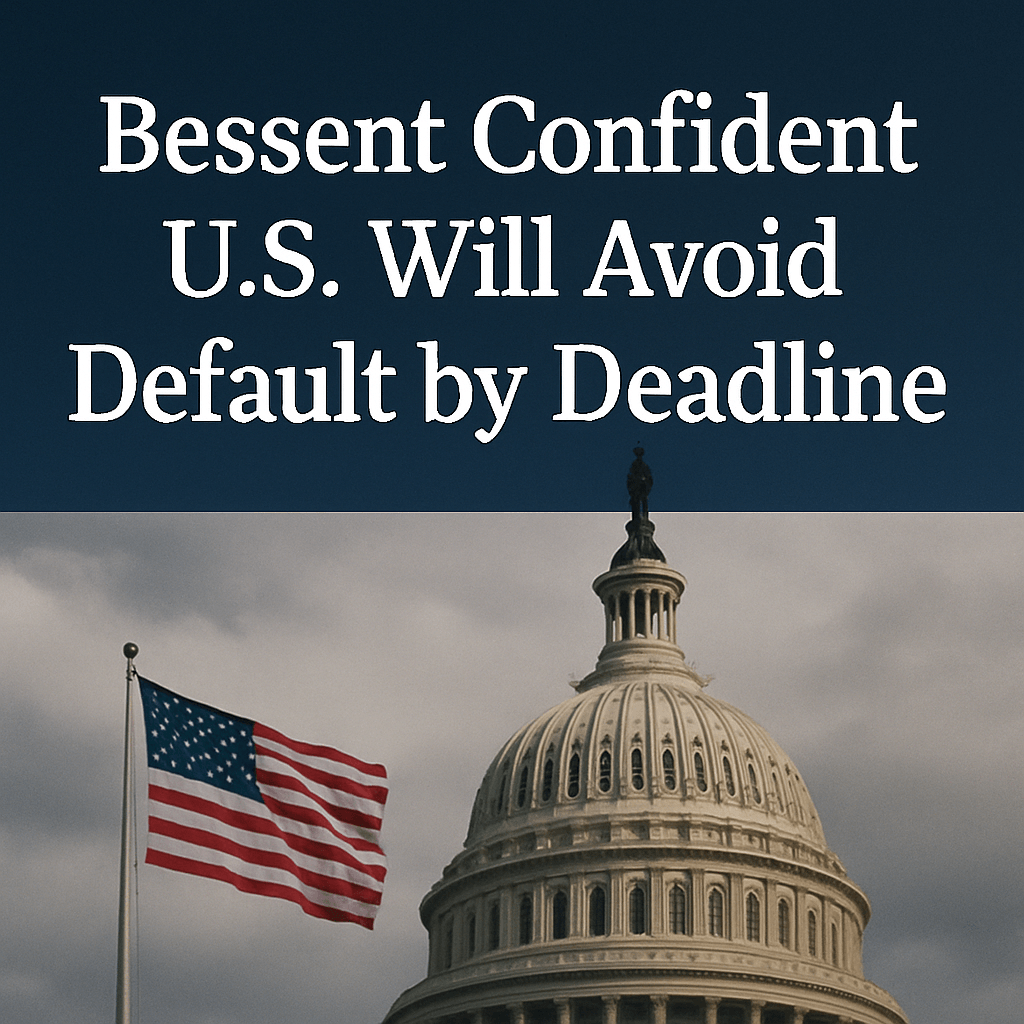Bessent Confident U.S. Will Avoid Default by Deadline

Treasury Secretary Scott Bessent confidently stated that the United States “is never going to default” as the nation approaches a critical deadline for increasing the federal debt ceiling. His remarks, made in an interview on CBS’s Face the Nation, reflect a sense of optimism amidst rising tensions in Congress.
The Impending Debt Ceiling Crisis
As legislators grapple with the complexities of the federal budget, Republican congressional leaders have linked the debt ceiling increase to President Donald Trump’s tax and spending proposal. This connection could complicate the process of avoiding a default, as it subjects the decision to intricate negotiations that involve various stakeholders in the government.
Currently, the Senate is set to reconvene this week to deliberate the legislation. The urgency of the situation is underscored by the looming X date—a term which denotes the point at which the Treasury is expected to exhaust its borrowing capacity and the special accounting maneuvers that temporarily relieve the debt ceiling constraints cease to be effective.
The Significance of the X Date
During the interview, Bessent refrained from providing a specific X date, explaining that the lack of transparency regarding this timeline is a strategic decision designed to facilitate negotiations within Congress. Previously, he indicated that the U.S. might reach this critical financial threshold by August if the debt ceiling is not raised or suspended in a timely manner.
Wall Street analysts and private economic forecasters predict that the government’s deadline could fall anywhere from late August to mid-October.
“The uncertainty surrounding the X date could lead to increased volatility in markets,” warned one market analyst, further stressing the importance of a timely resolution.
Market Reactions and Expert Opinions
Bessent also addressed concerns voiced by Jamie Dimon, CEO of JPMorgan Chase & Co., regarding potential vulnerabilities in the bond market. Dimon warned of an impending “crack in the bond market,” a prediction that Bessent downplayed, stating, “I’ve known Jamie for a long time, and for his entire career, he’s made predictions like this. Fortunately, none of them have come true.” This commentary highlights the divide in sentiment between financial institutions and government officials regarding the potential fallout of the debt ceiling negotiations.
The Path to Reducing the Deficit
Bessent emphasized the government’s commitment to gradually reducing the federal deficit, stating, “We are going to bring the deficit down slowly.” This approach, he noted, is part of a longer-term strategy with the goal of curtailing the deficit over the next four years. Economists suggest that emphasis on sustainable fiscal policies, rather than abrupt cutbacks or austerity measures, is likely to foster a more stable economic environment.
Conclusion: A Critical Moment for U.S. Fiscal Policy
As Congress approaches this pivotal moment in U.S. fiscal policy, the potential for a default remains a pressing concern. The outcomes of ongoing negotiations will not only affect the country’s creditworthiness but also the broader stability of financial markets. Stakeholders in both the public and private sectors are watching closely, with the implications reaching far beyond the realm of government finance.
In conclusion, while Bessent’s assertions provide some reassurance, the unfolding events will demand careful monitoring and proactive measures by all parties involved.
Source: fortune